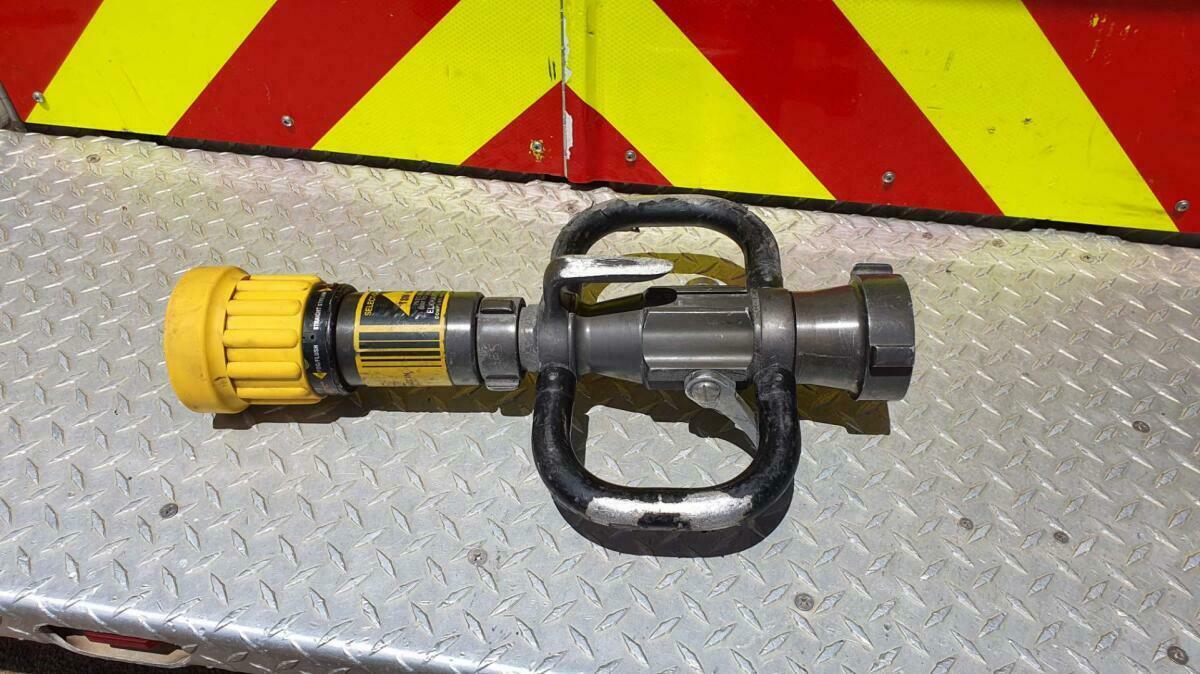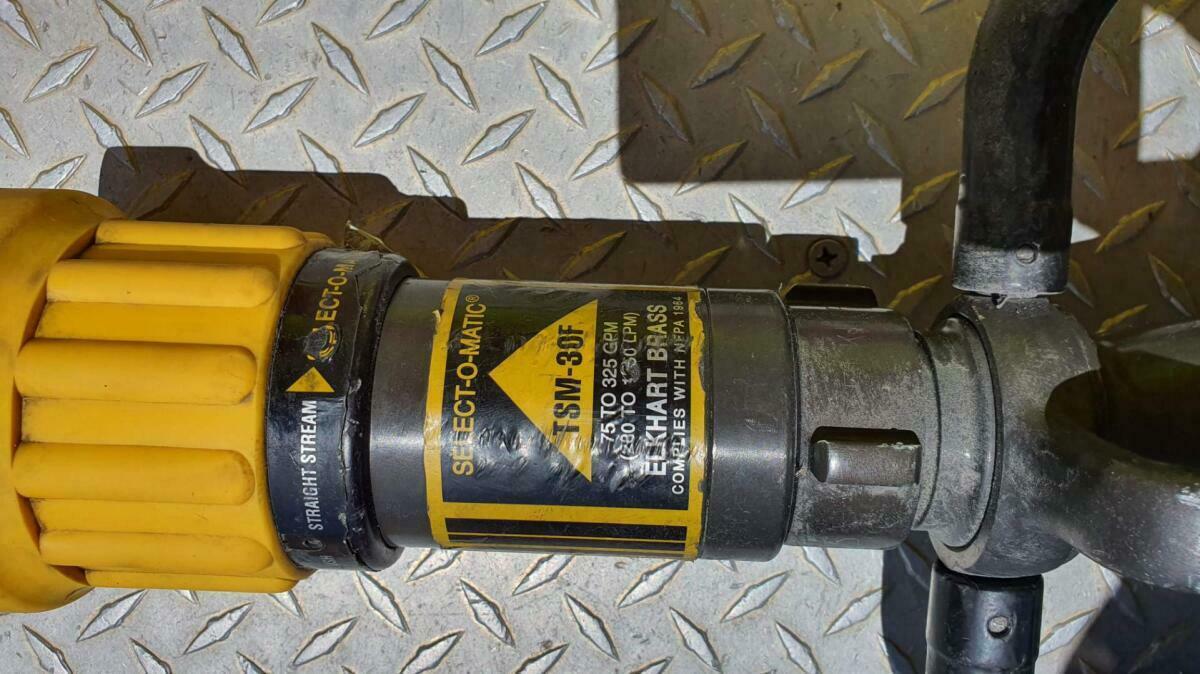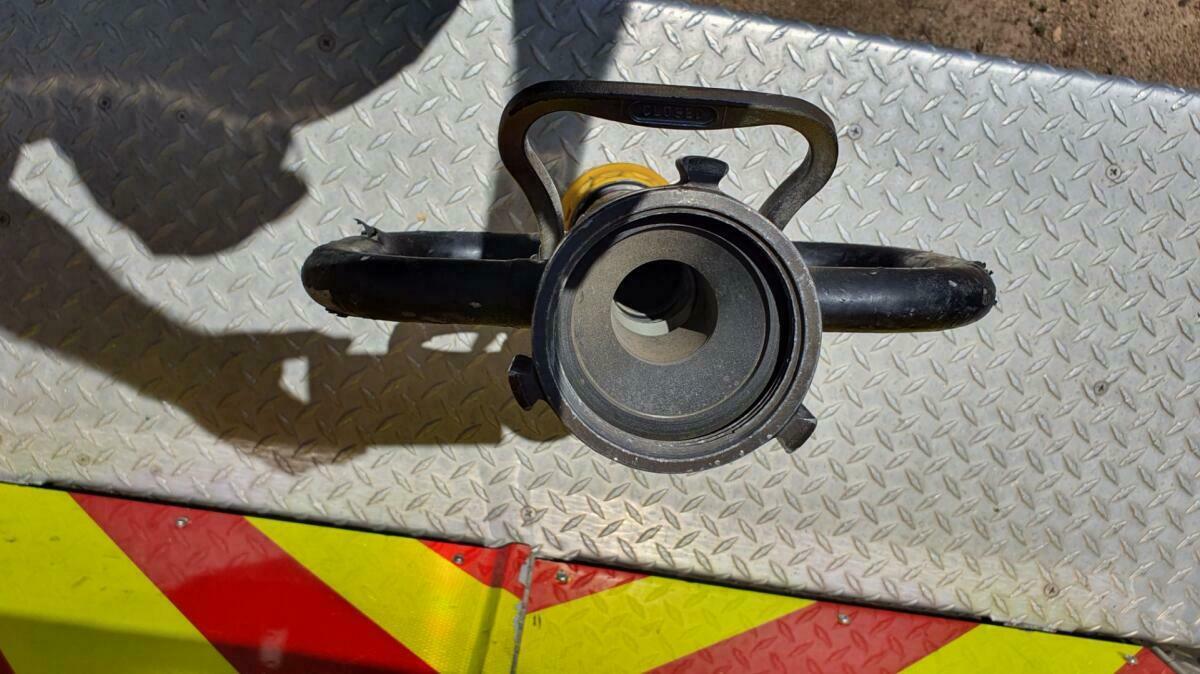-40%
Elkhart Brass TSM-30F fire hose nozzle
$ 237.6
- Description
- Size Guide
Description
Elkhart TSM-30F Select-O-Matic fire hose nozzle in great condition. 75-325 GPM. Stream or fog. Playpipe handle. Free shipping within the US. More details below.The Select-O-Matic series of handline nozzles are the most efficient and effective fire suppression tools available to the fire service today. The automatic mechanism in each of these nozzles assures you of a superior firefighting stream throughout the flow range. The constant flow feature assures you of the same gallonage throughout the fog and straight stream patterns. This helps make Select-O-Matics ideal for use with foam eductors and the application of AFFF and Class A Foam. A built-in flush feature allows passage of debris from the nozzle without shutting down. These nozzles are constructed of durable, lightweight Elk-O-Lite and stainless steel, and are designed to give you many years of trouble-free service. All Select-O-Matic nozzles comply with the requirements ofNFPA 1964, Standard for Spray Nozzles (Shutoff and Tip), 1998 Edition, as applicable to constant pressure (automatic) gallonage spray nozzles.
SHUTOFF
The ball shutoff portion of all Select-O-Matic nozzles feature double handle stops and high-strength, aluminum/bronze cast handles for rugged dependability. The horseshoe handle is large enough to allow operation with a gloved hand, while the tab handle, although smaller, is less bulky, yet easy to grip. Both handles are easy to operate. The hydraulically balanced acetal ball within the shutoff allows for easy opening and closing of valve. By allowing water flow over and under the ball, the cutaway design practically eliminates accidental shutdown. Teflon impregnated neoprene seats give the “self-healing” advantage of soft rubber plus a lubricated surface to prevent the ball from sticking shut. These seats may be adjusted without dismantling the entire shutoff. Refer to the parts drawing for adjustment and replacement of seats.
TIP
This portion of the Select-O-Matic nozzle is protected by a heavyduty urethane bumper and controls the stream pattern selection and the flush mechanism. To change from fog to straight stream, rotate the tip to the right. To change to fog or flush, rotate the tip to the left. The tip has a fully machined waterway for greater flow efficiency. Low turbulence allows for better stream quality. This portion of the nozzle houses the stainless steel spring which activates the automatic mechanism. Do not attempt to disassemble this “spring cell” without a special fixture. The stem can be removed, however, by removing the jam nut on the “upstream” end of the stem. The acetal spinning teeth or the optional molded urethane teeth located in the tip can be removed and replaced easily.
FLUSH
Many water supplies contain rust and debris which can get trapped inside the nozzle. This will cause poor stream quality and reduced water flow capabilities. When this occurs, with water still flowing, the firefighter needs only to rotate the nozzle tip to the left (past wide fog) as far as it will go. At this point the tip is in flush position and will pass foreign material. Once the debris is flushed, the tip can be turned back to original stream selection for normal operations. If the debris is too large to flush, the firefighter may have to shut down the hose line and remove the nozzle. The debris can then be removed from the base of the nozzle or from around the stem head.
OPERATIONS
Select-O-Matic nozzles are designed to maintain sufficient pressure to give an effective firefighting stream as long as the flow is within the nozzle’s flow range. The flow ranges of the Select-O-Matics are as follows:
SM-30F series, 75-325 gpm
SM-20F series, 60-200 gpm
SM-10F series, 60-125 gpm
SM-3F series, 10-75 gpm
To supply these nozzles with the flow desired, refer to the Engine Pressure Guide furnished with each nozzle. Using this guide is an easy way for the pump operator to set engine pressure for the necessary flow as dictated by the fireground officer. If an EPG is not available, just go back to basics: Engine pressure (E.P.) should be set to provide 100 PSI nozzle pressure (N.P.), plus friction loss of the hose (F.L.) plus any appliance loss (A.L.), plus any elevation loss (E.L.) E.P. = N.P. + F.L. + A.L. + E.L







